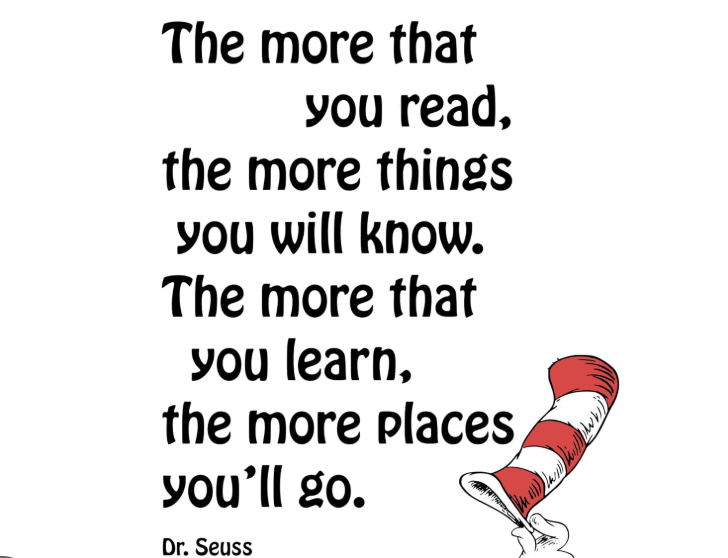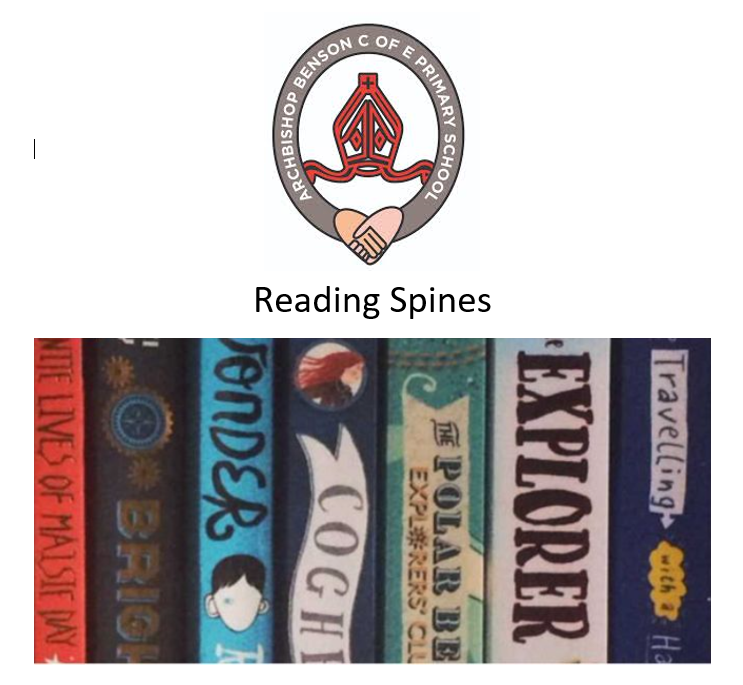Reading
Share this page
At Archbishop Benson, we believe that speaking and listening, reading and writing are essential life skills. We aim to nurture a love for reading, writing and discussion, equipping our pupils with the knowledge and skills needed to become life-long readers and authors. Reading and writing weave their way through our CHAIN curriculum, binding skills together for a richer learning experience.
Reading Intent Statement
‘I can do all things through Him who strengthens me’ (Philippians 4:13)
‘With fun and learning, hand in hand, all things are possible.’
Our school motto helps us, with the best intent, to choose how we teach reading, and provide a consistent richness of experience across the school. We strive to teach reading in a way that reflects our shared purpose and Christian ethos, as well as encompassing our school values of Respect, Creation, Fellowship, Wisdom and Hope.
At Archbishop Benson, we believe that learning to read is a vital life skill and we are dedicated to enabling our pupils to become lifelong readers. Reading opens the door to a child's early academic success, imparts a love of learning and allows children to access the magical world of fantasy. We want to develop our children’s imagination to open up a treasure house of wonder and joy for curious young minds. We believe that early reading is the bedrock of success in education and therefore strive to ensure that all children are equipped with secure phonetic knowledge and the ability to blend and decode words which help them to become successful, fluent readers by the end of Key Stage One.
In order to achieve the above, we aim:
-
to deliver the aims of the National Curriculum and ensure there is clear progression from EYFS to Y6
-
to teach systematic, synthetic phonics combined with a whole language approach that promotes reading for enjoyment.
-
to ensure that all pupils read a variety of genres and high quality challenging text types confidently, fluently and accurately with understanding and enjoyment
-
to develop the habit of reading widely and often, for both pleasure and information.
-
for children to become enthusiastic and motivated readers
-
for pupils to have good knowledge of a range of authors, and be able to understand more about the world in which they live through the knowledge they gain from texts.
-
to use reading to provoke thought within children and to develop vocabulary.
-
to plan and structure engaging, challenging lessons for all pupils
-
to provide resources and displays in classrooms that support the children’s learning, especially of new vocabulary, which they can then use confidently and independently in their writing
-
that all children, by the end of their time at primary school, should be able to read fluently, and with confidence, in any subject in their forthcoming secondary education.
Reading Implementation
Whole Class Reading
KS2 have daily whole class reading lessons (Year 3-6). We develop the VIPERS
(vocabulary, inference, prediction, explanation, retrieval and sequencing/summarising) skills to enable all children to look closer at texts, extract information and query meaning in a deeper way. Our shared love of vocabulary and reading see children’s listening, attention, expressive and receptive vocabulary, as well as their letter and sound recognition, grow. Book discussion is widely encouraged in class which supports them to empathise with characters, share opinions and debate topics. Teachers nurture a love of books by placing reading at the center of the curriculum, introducing new texts with enthusiasm and enjoyment, promoting a sense of wonder and expectation as the text is explored. Every child is taught a range of strategies to support their development to become a confident, independent reader.
As well as daily whole class reading lessons, teachers read and explore challenging, engaging novels with the children. A whole school reading spine has been created for every year group to ensure high quality texts are used for their class novel.
Planning
Teachers use our reading progression grids to ensure all the key skills are taught. Engaging, quality reading novel spines have been created for each year group. The range of novels covered throughout the children’s primary experience ensure that every child will experience stories, ideas and feelings, which leave an impression on them. The children study their class novel on a Monday and Friday. Related texts, which are studied on a Tuesday-Thursday, have been designed to include a mixture of picture books, fiction, non-fiction, poetry, films and songs. Teachers follow a termly MTP overview to ensure there is correct coverage of key skills (see separate document).
Cross Curricular Approach
Reading is an integral part of the curriculum and cross-curricular links are made wherever possible.
Reading at Home and Incentives
We believe that every child should be given the tools to develop into an enthusiastic and confident reader both at home and at school. Children are encouraged to read regularly at home. Children’s individual reading records are an important source of communication between home and school and it is vital that these are signed to indicate how often the child has read. To encourage children to read regularly at home, we have a termly reading rewards/Incentives.
Accelerated Reader (AR) KS2
In KS2, Accelerated Reader is used to foster independent reading and monitor reading practice and progress. It helps teachers guide children to suitable books. Pupils then take short quizzes after reading a book to check understanding and improve comprehension skills.
Assessment
Teachers use their professional judgement to determine whether a child is working within age-related expectations, above or below. Summative assessments will be entered onto SIMs each half term.
A combination of the following is used to form termly summative assessments:
- formative assessments from daily phonics/reading lessons
- termly PIRA assessments are used to help form teacher assessments.
- Star Reader tests from Accelerated reader will also help to provide valuable information about each child. Children’s Accelerated Reader quiz results will also be used.
- verbal and written outcomes pupils have given after structured teaching within the agreed reading skills.
Marking and Feedback:
Feedback and live marking should be completed, where possible, within the lesson. All marking and feedback are given in line with our marking and feedback policy.
Enrichment
The ability to read confidently, fluently and accurately has far-reaching implications for lifelong confidence, well-being and social mobility. Our thorough approach is designed so that pupils become literate adults and readers for life and play a key role in society. Alongside this achievement, we foster a culture of a shared love of reading, including multiple types of literature to read with enjoyment. This extends to texts and newsworthy articles of national and international importance, with children growing to reflect, evaluate and justify their preferences and views. Text choices are integrated with our writing topics, often focussing on important issues of the day to grow global citizens. Reading bible stories forms a core part of our class worship and daily routines, raising important moral and spiritual questions.



